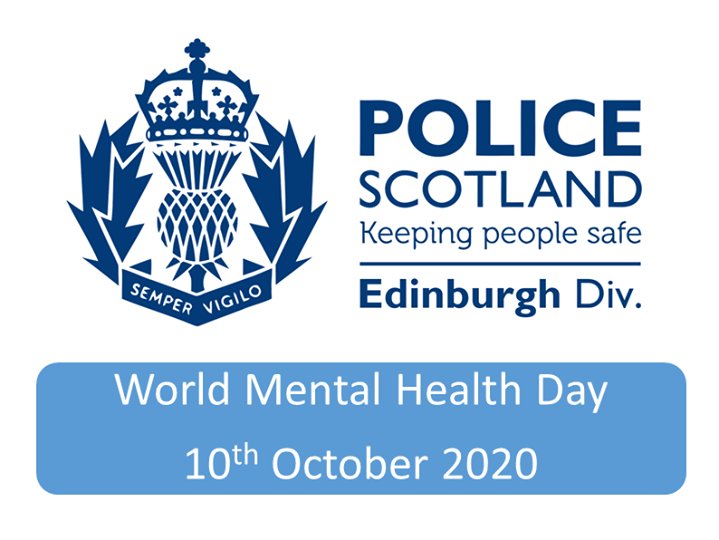Police Scotland advice on suicide prevention ahead of World Mental Health day
Police Scotland have continued to provide advice on suicide prevention ahead of World Mental Health Day on 10th October.
Starting a conversation
“Talking with friends or loved ones about their problems is never easy.

“Often they don’t want to talk. Sometimes they do, and we just don’t realise it. When they do start talking, it can be difficult to know how to respond. If a problem is really bad, what can we say?
“Every situation is different, and there are no definitive answers. But here are some suggestions to help you start talking in difficult, challenging situations. Starting a conversation is half the battle. Once someone knows they can speak freely, the chances are that they will talk.
How do you know there’s a problem?
“A lot of us prefer not to talk about our problems. Needing help can be seen as weak or shameful. But if friends or loved ones don’t tell us something’s bothering them, how are we supposed to know?
“Sometimes people do put out signals tentatively. The signs are often there if we know what to look for. Here are some of the ways that people signal that they may need help:
Putting themselves down in a serious or jokey way, like ‘Oh, no one loves me’ or ‘I’m a waste of space’.
Losing interest in their appearance.
Using drugs and/or alcohol as a comfort.
Changes in sleeping and/or eating habits.
Being uncharacteristically clumsy or accident prone.
Making leading statements, like ‘You wouldn’t believe what I’ve been through’ or ‘Someone up there’s got it in for me’.
Some of the ways you can approach difficult conversations:
By being understanding, tactful and gentle, there’s a better chance that someone will want to talk. Some useful phrases are ‘Is there anything I can do?’, ‘Why don’t we have a coffee and talk about it?’, ‘I’ve been a bit worried about you’, ‘Are you OK?’ and ‘I’d like to help’.
The art of conversation – http://ow.ly/IcjR50BJpC1